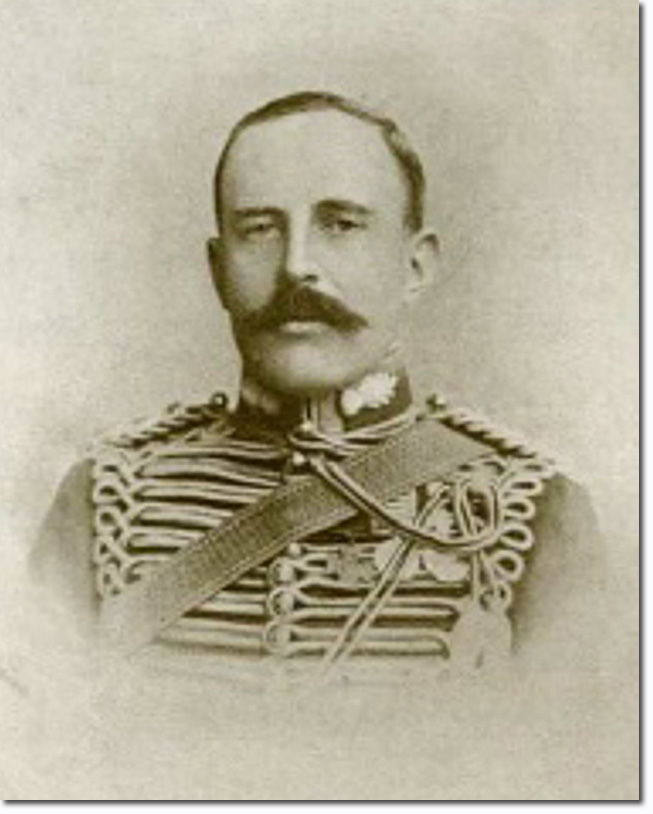|
|


|
|
Hamilton Lyster Reed was born in Dublin on 23 May 1869. His father was Sir Andrew Reed, Inspector-General of the Royal Irish Constabulary. His mother, Elizabeth was the daughter of Hamilton Lyster, and his uncle was Lieutenant-General Harry Hammon Lyster VC of the 72nd Bengal Native Infantry. Hamilton Reed was commissioned into the Royal Artillery on 16 Feb 1888, and promoted to captain in 1898. In the South African war he was with 7th Royal Field Artillery. It was at the Battle of Colenso on 15 Dec 1899 where Colonel Long, commander of the artillery, placed his batteries too close to the Boer position and lost 10 guns. Captain Reed brought 3 teams from his battery to try and save the guns. He was wounded as soon as his men went into action. Thirteen of his gunners were also wounded and one killed. Of the 21 horses that he brought in 13 were killed. They never reached the guns and were forced to retire.
He was presented with his medal on 4 Mar 1900 at Ladysmith. He went on to take an active part in the battles at Spion Kop, Vaal Krantz, Tugela Heights, Laing’s Nek, Belfast and Lydenburg. From 1900 to 1902 he was in the Orange River Colony. He was mentioned in despatches 3 times and promoted to major in 1904. He went to Staff College the following year and was appointed to the General Staff at Army HQ from 1906 -1910. He was married in 1911 to Majorie Olive and they had a son and two daughters. In 1912 he was attached to the Turkish Army in the Balkan war. He served in the British Army throughout WW1 and was mentioned in despatches 7 times. He reached the rank of Major-General, was appointed CB and CMG, and retired in 1919. He died in South Kensington on 7 Mar 1831 and was buried in East Sheen Cemetery, Richmond, Surrey. |
Armed Forces | Art and Culture | Articles | Biographies | Colonies | Discussion | Glossary | Home | Library | Links | Map Room | Sources and Media | Science and Technology | Search | Student Zone | Timelines | TV & Film | Wargames